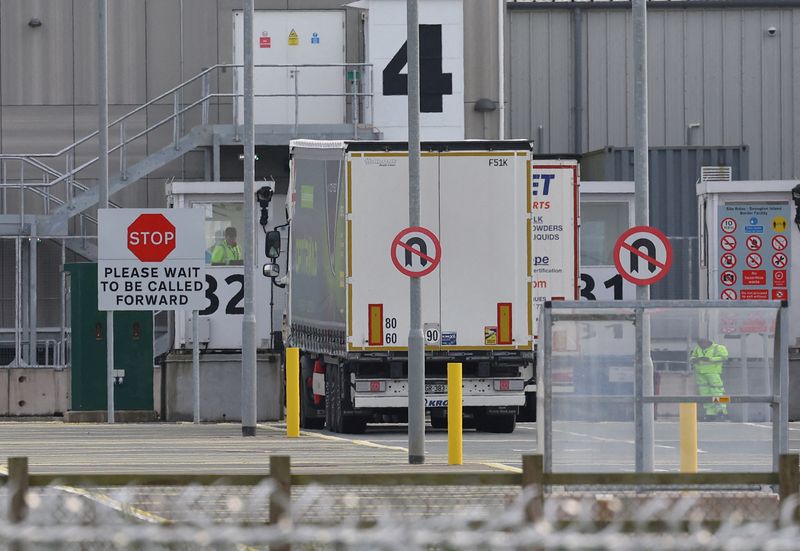Britain Imposes Physical Checks on EU Food Imports: What You Need to Know
By James Davey

After three years of leaving the EU’s single market, Britain has finally launched physical checks on fresh food products imported from the European Union. This move comes eight years after the historic Brexit vote that changed the course of the nation’s future.
While major supermarkets and large EU exporters have adapted to the new demands and paperwork, smaller retailers and wholesalers are warning of potential delays and disruption. As a result, consumers may experience a reduced variety of quality goods, less fresh produce, and higher prices.
The first phase of Britain’s new Border Target Operating Model began on Jan. 31, requiring additional certification. The second phase, which started on Tuesday, introduces physical checks at ports for “medium risk” animal products, plants, and plant products such as meat, fish, cheese, eggs, dairy products, and certain cut flowers. Additionally, new charges have been implemented.
The government argues that these new checks, including visual inspections and temperature readings of goods, are crucial in preventing diseases and pests from entering Britain. Cabinet Office minister Lucy Neville-Rolfe emphasized the importance of biosecurity and the level playing field these measures will create for UK exporters.
Despite the delays in imposing checks on EU imports, the government’s decision to enforce stricter regulations is seen as a necessary step. The EU had already implemented its rules, causing disruptions at ports in 2021 and leading some British exporters to rethink their strategies.
Last week, UK lawmakers demanded clarity from the government regarding the frequency of checks as businesses continue to navigate this new landscape. Industry leaders, such as William Bain from the British Chambers of Commerce and Nigel Jenney from the Fresh Produce Consortium, have expressed concerns over the inefficiency and costs associated with the new border control measures.
The government has assured businesses that it will take a pragmatic approach to checks, focusing on goods with the greatest biosecurity risks and ensuring the smooth flow of imported goods. While these measures are estimated to increase costs for importers by £330 million ($413 million) annually, the impact on food inflation is projected to be minimal at just 0.2% over three years.
As Britain navigates its post-Brexit reality, stakeholders in the food industry are bracing for further changes and challenges ahead.
Source: Reuters

